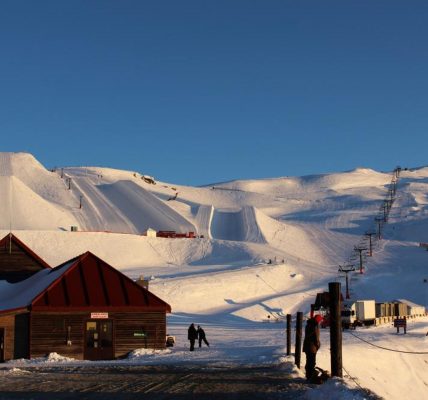Bushcraft expert Ray Mears on why he hates social media and never takes selfies
As bushcraft expert Ray Mears releases a new book, Liz Connor speaks to the adventurer about the joys of downing our smartphones and embracing the natural world.
He’s the TV bushcraft expert that’s travelled to some of the wildest regions of the planet, from the tropical lushness of the Amazon rainforest to the chilly wilds of the Arctic – but Ray Mears says his favourite place to ramble is still right here in Britain.
“We have the most beautiful island,” says the 57-year-old. “I can’t think of anywhere that’s as diverse in such a small space. It’s the best nursery ground for adventure.
“It’s funny as I’ve met people on my travels whose only view of Britain is from watching EastEnders, and that gives you such a false picture of it,” he continues.
His latest book, We Are Nature: How To Reconnect With The Wild, is very timely. It explores the idea of returning to nature by reconnecting with your local area, while learning to rely on your senses rather than gadgets and technology.
“My work has always been about connecting people with nature. One of the things that really interests me as a concept is that we need to rewild people as much as the landscape,” explains Mears.
As a species, we’ve disrupted landscape for agriculture, destroyed forested areas, and hunted animals to extinction.
Many rewilding initiatives are designed to conserve habitats and reintroduce keystone species, like wolves and beavers, to help rebalance ecosystems and boost biodiversity.
“Our primitive senses are still there, but never before have we been more distracted with so many gadgets and toys. Social media is all about stealing our time,” notes Mears.
“That gets in the way of our discovery and development of these capabilities, to our detriment. The thing that concerns me is that someone could live their whole life and never have discovered their sensory capability.”
As well as sharing detailed anecdotes from his incredible encounters with the natural world, the book also features practical advice on how to prepare for an adventure in the wilderness, plus tips on how to stay safe if things go wrong.
“Unless you’re going to be camping, you don’t need very much,” explains Mears, who is famous for his hit TV series Extreme Survival and Ray Mears Goes Walkabout.
“Arguably the most important thing is a warm jacket.
“That’s one of the joys of getting into nature – you don’t have to invest a lot of money in equipment. I like that simplicity; it’s spiritually liberating.”
Mears says he’s always looked at nature and wildlife as the ‘teachers’. “When you follow an animal, you go on a road of learning. I remember vividly following the octopus,” he remembers, and in the book describes tracking the soft-bodied molluscs in the Red Sea off the coast of Egypt, being mesmerised by its ability to adapt through colour-changing camouflage.
“You never forget these experiences. They’re seared into my memory very deeply. You can forget things you’ve watched on TV, but you can’t easily forget the things you’ve witnessed with your own eyes.”
While few of us have had the opportunity to travel this year, Mears believes many of us have found ourselves being more adventurous. “A lot of people have discovered nature locally during lockdown,” he notes.
“That’s really encouraging, as perhaps they’ll now look more widely for those experiences. I hope so, as conservation is very much bound up with people visiting nature and experiencing it.”
He also hopes the slowing down of life during lockdown will change our attitudes towards what he calls the ‘beleaguered’ Green Belt.
“The green spaces in our cities and parks have never been more valued than they were this year,” he says. “It’s been a reminder of how important having green spaces for mental wellbeing are.”
Mears grew up in southern England on the North Downs where he developed a deep fascination with the countryside, learning to track foxes and use the natural tools at his disposal.
This interest was further fuelled by his school judo teacher.
Kingsley Hopkins was a Second World War veteran who had fought behind enemy lines in Burma and taught him the mantra “You don’t need equipment, you need knowledge to survive in the wild.”
This seemingly simple ethos, along with the principle of “maximum efficiency from minimum effort”, has since become the bedrock of his Bushcraft philosophy.
Since then he’s done a string of programmes including Ray Mears’s Extreme Survival and Survival with Ray Mears and written several books including The Outdoor Survival Handbook and Northern Wilderness.
During lockdown Mears has been writing at home in Sussex, and while he’s enjoyed putting down his passport for a while, he says he’s missing real life interaction.
“I like meeting people, hearing their stories and the questions they ask. Television is a great way to communicate to a lot of people, but it doesn’t beat actually talking face to face.
“Normally I spend about a month every year in Lapland teaching Arctic skills, so I really missed being in the Boreal forest on a pair of skis this year. The extreme cold tightens your skin and mind which is great – it’s strange, some of the things you miss. But I was just in Australia before lockdown, in the aftermath of the bushfires on Kangaroo Island, so I’ve done a lot of travelling and it’s been nice to put my feet up.”
Bushcraft has had a massive revival in recent years, with millennials discovering the joys of fire starting and tin-can bread making. Mears, who has been on our screens since 1994, is arguably the godfather of the scene, so how does he feel about the younger generation getting in on the act?
“It’s great,” he says, “but this is not new.
“When I first started teaching, young people who had scrimped and saved were finding an old Land Rover in a barn, fixing it, and off they went. I think every generation feels they’re the pioneers, and they’re not, but it’s good they feel it.
“Mostly people go on adventures that are organised for them now. I don’t want to sound like a grumpy old man, but you have to have a rationale to go on an adventure.
“People get high on the concept of adventure and forget that the best ones come along from asking questions and having a purpose.
“I do wonder about the type of adventures people have now,” he continues.
“I think social media has meant that people like to take inspiring selfies that don’t tell the truth behind the photograph.
“You can take a picture that looks as though it’s at great height, but actually, you might only be a few feet off the ground.
“It’s very easy to be beguiled by social media – I don’t do selfies.
“I can’t stand social media,” he says. “Our life is the most precious gift we have from nature. I certainly don’t want to waste it.”
We Are Nature: How to Reconnect With The Wild by Ray Mears is published by Ebury Press, priced £20.










